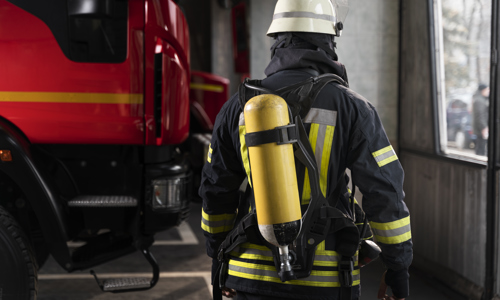- Smoke detectors and alarms are fitted in your home. Please follow any instructions for testing your alarms
- Fire notices have been put up in the common areas if there are any – please familiarise yourself with them
- Keep exits from your home clear and keys to windows and doors in easy reach
- Keep any communal areas you share with neighbours - corridors and staircases - clear of all items especially large things such as prams, bikes or large plant pots. These could get in the way of people evacuating the building, and could also fuel a fire
- Accidents while cooking account for over half of fires at home. Don't leave children alone in the kitchen. Don't leave cooking unattended or use cooking facilities if you have been drinking or are taking strong medication
- Keep candles well away from anything flammable and don't leave candles unattended when lit
- Don't smoke in bed
- Close all doors at night to help prevent the spread of fire
- Don't overload electrical sockets
- Switch off and unplug your TV and other electrical goods - leaving them on standby could cause a fire
- Register your appliances online to get safety alerts from the manufacturer
- Make sure you have an escape plan. If any of the occupants need assistance to evacuate, please get in touch and update us if circumstances change
- We are legally required to carry out fire risk assessments of your building periodically and this will involve inspecting the communal areas and sampling a number of flats. You can contact us to request a copy of your Fire Risk Assessment.
Evacuation policy for your building
- If you live in a flat or an apartment there will be a fire action notice in the entrance and common parts of your building. This will either be a Stay Put or Simultaneous Evacuation Policy. Please familiarise yourself with these notices – an example can be seen below.
Means of escape from your home
- The best escape route is usually the normal way in and out of your home but do familiarise yourself with any alternative exits
- There will an emergency exit to leave the building.
Fire safety and balconies
If a fire breaks out on your balcony, it could spread much faster than a fire inside your building. Below are some simple tips to help keep you and your family safe.
- If you smoke on your balcony, use proper ashtrays which can’t tip over. Stub/dispose of cigarettes properly
- Never use a barbecue or cook on your balcony
- Don’t store gas cylinders on your balcony, there’s a risk they may explode
- Don’t burn candles or incense or use an essence oil burner on your balcony
- Storing combustible items on your balcony can spread fires more rapidly, so please keep them free of these items.
E-Scooters, e-Bikes, and hoverboards - storage and fire safety
If you own, or you are planning to buy an e-scooter, e-bike, or hoverboard please be aware these devices usually contain powerful Lithium-ion batteries which can contribute to fires. In 2021, the London Fire Brigade* responded to over 50 fires involving e-scooters and e-bikes. There are restrictions on their use on the roads, and on some transport services.
Here are some tips for reducing the risks associated with charging and storing e-scooters, e-bikes and hoverboards:
- Always follow manufacturer’s instructions for use
- Don't leave batteries charging overnight, unattended, on soft or uneven surfaces, or anywhere along an escape route (e.g. a hallway). Don't charge batteries if they are still warm from use and unplug the charger once batteries are fully charged
- Regularly check batteries and chargers for damage and replace as necessary. Only use approved accessories purchased from a reputable seller
- Store e-scooters, e-Bikes, and hoverboards away from escape routes. Please don't store on balconies or expose batteries to extremes of hot or cold. Fire and explosion resistant bags can be purchased to store batteries more safely overnight.
*London Fire Brigade (2022) E-scooters and E-Bikes.

Did you know?
- Smoking is the most common cause of fire fatalities.
- Fires are more likely to start in the kitchen than any other room in your home.
- From white goods to faulty chargers, electrical items are the fourth biggest fire risk in the home.
- 90 people die every year because the battery in their smoke alarm was flat or missing.

